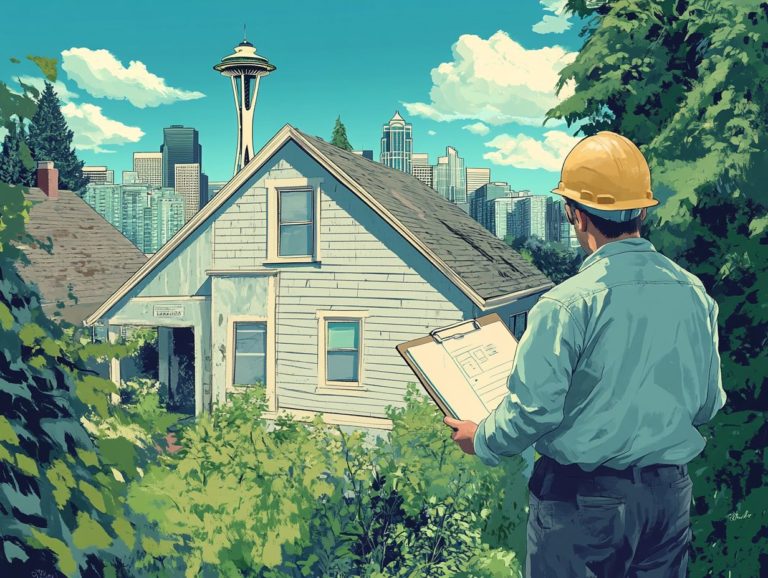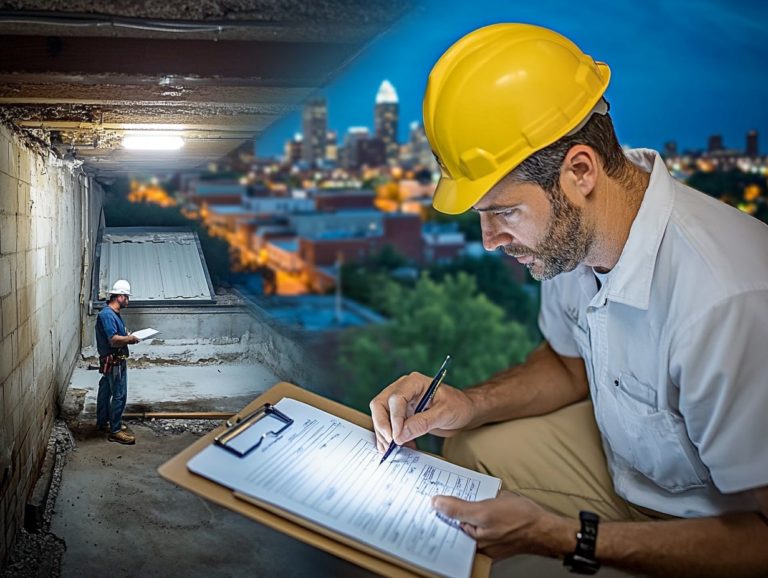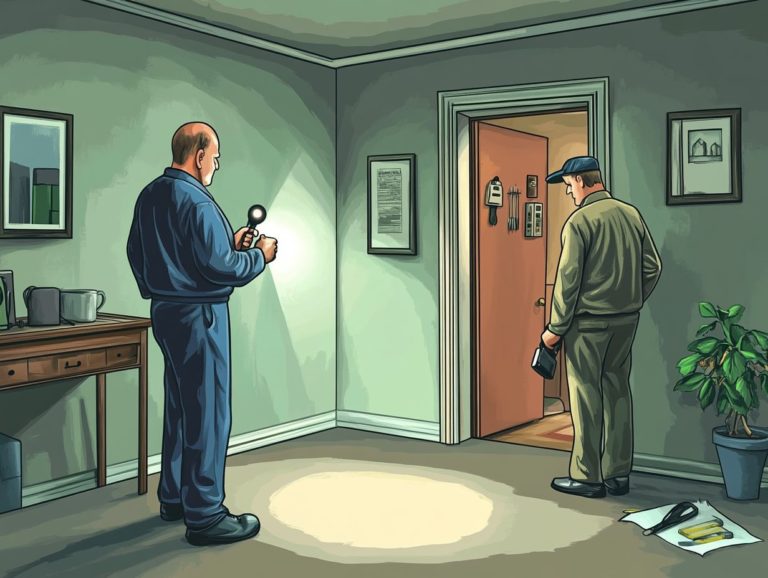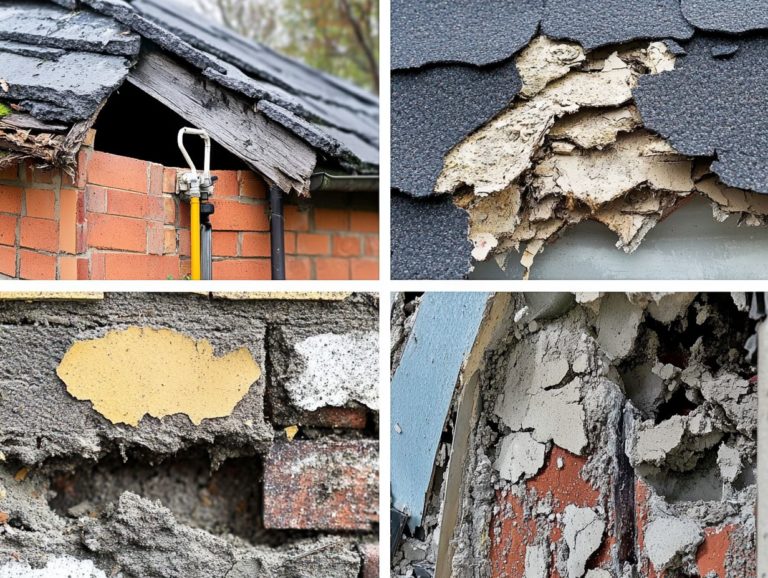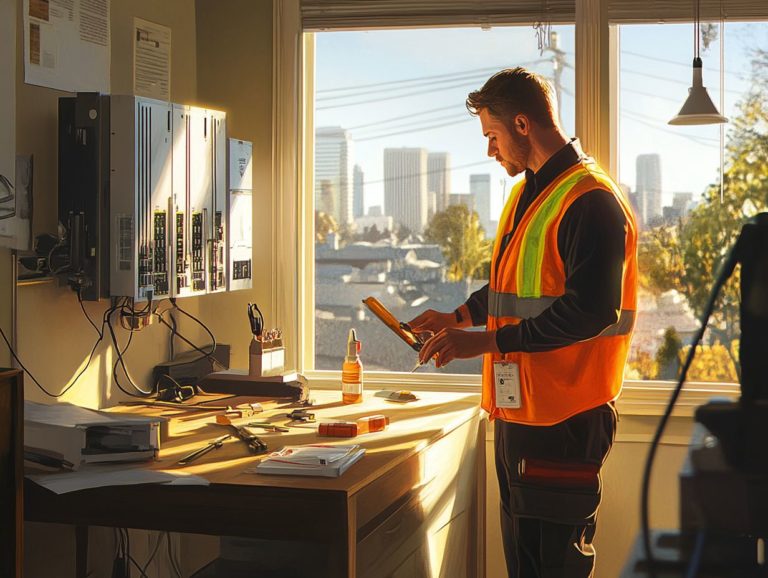5 Common Home Inspection Mistakes
Purchasing a home stands as one of life s most significant investments. Yet, many potential homeowners often overlook vital steps in the process.
One of these steps is the home inspection, a critical component for ensuring that your future residence is safe and sound. Avoidable mistakes during this phase can lead to expensive repercussions.
Let s explore the top five pitfalls you must avoid to secure your dream home! You ll discover how to prepare effectively and make informed decisions, all aimed at ensuring that your home-buying experience unfolds with ease and confidence.
Contents
- Key Takeaways:
- 1. Not Hiring a Professional Inspector
- 2. Skipping the Inspection Process Altogether
- 3. Not Being Present During the Inspection
- 4. Not Asking for a Detailed Report
- 5. Not Following Up on Repairs or Issues
- What Is a Home Inspection and Why Is It Important?
- What Are the Key Areas Inspected in a Home?
- How Can a Home Inspection Help with Negotiations?
- What Are the Potential Consequences of Skipping a Home Inspection?
- How Can a Homeowner Prepare for a Home Inspection?
- What Are the Benefits of Regular Home Inspections?
- Frequently Asked Questions
- What are the 5 common home inspection mistakes?
- Why is it important to hire a qualified home inspector?
- What should I do during a home inspection?
- Why should I read the full inspection report?
- Should I consider potential future problems during a home inspection?
- Why is it important to budget for repairs after a home inspection?
Key Takeaways:
- Hiring a professional inspector is crucial to avoid major home inspection mistakes.
- Don t skip the inspection process or miss being present during it; this can lead to costly problems down the line.
- Request a detailed report from your inspector to ensure a comprehensive understanding of your home’s condition.
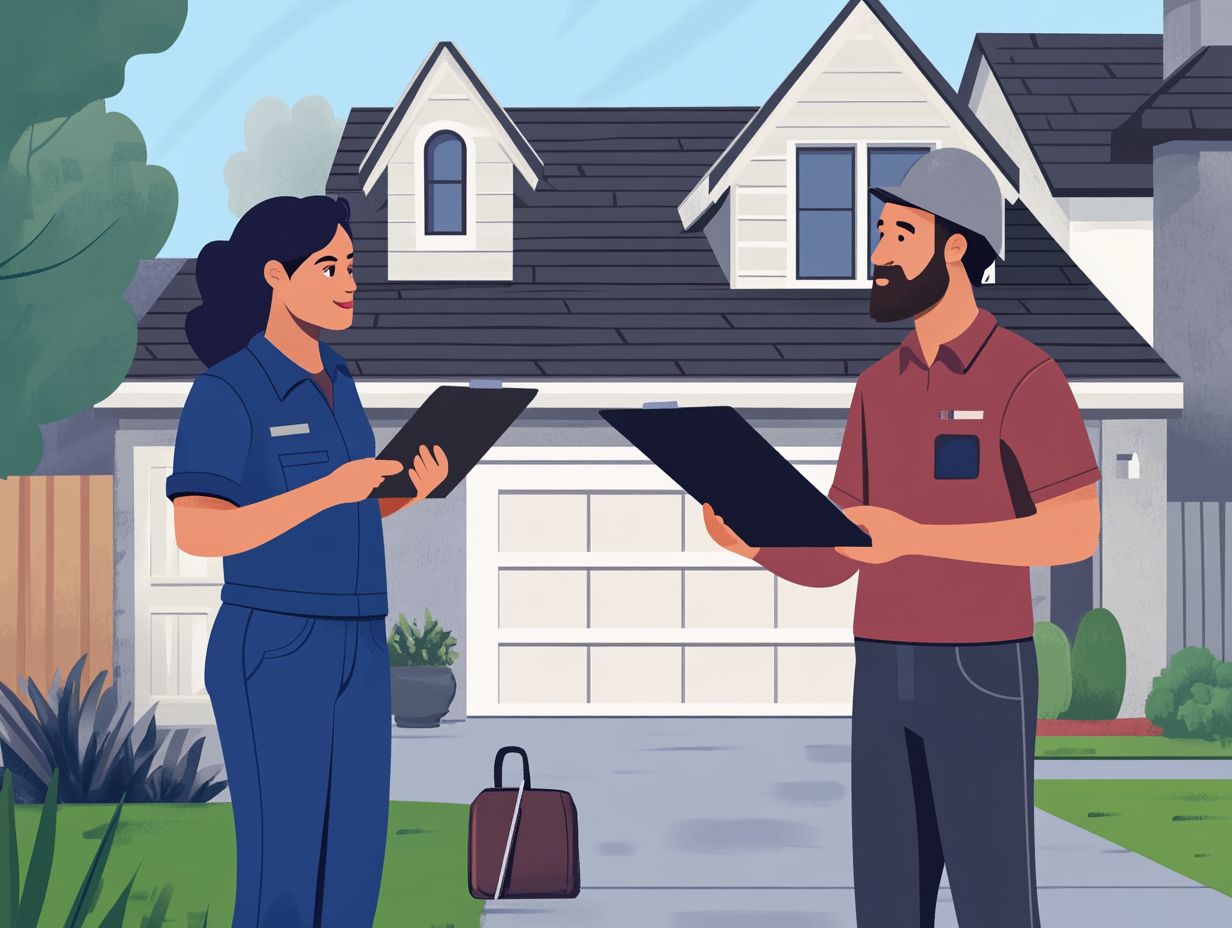
1. Not Hiring a Professional Inspector
Not hiring a professional home inspector can lead you to overlook critical issues affecting both the safety and value of your home. It’s important to understand 5 things to know about home inspections, as issues like roofing problems, plumbing mishaps, and electrical failures might not be immediately obvious.
A certified inspector provides an unbiased property assessment, ensuring you whether buying, selling, or maintaining are fully informed about any hidden defects before making a significant investment. This is especially crucial for older homes or new purchases.
Without this expert evaluation, you risk discovering hidden issues, like foundation cracks or water damage, which can quickly escalate into costly repairs. For example, that seemingly harmless roof leak could be hiding extensive mold growth or wood rot that, if ignored, could lead to major renovations down the line.
Catching these issues early helps safeguard your property s immediate safety and plays a key role in preserving its long-term value. Investing in a professional assessment can save you from unexpected financial burdens and stress.
2. Skipping the Inspection Process Altogether
Skipping the home inspection process can lead to significant consequences. You might uncover issues such as mold, inadequate insulation, or drainage problems after purchasing a property, which is why it’s crucial to be aware of 5 warning signs during a home inspection to avoid costly repairs and safety concerns.
These overlooked problems can affect your home’s energy efficiency, leading to higher utility bills and discomfort. According to the American Society of Home Inspectors, nearly one in five homebuyers faces unexpected issues that could have been avoided by knowing how to avoid home inspection pitfalls with a thorough inspection.
The importance of this step cannot be emphasized enough; it acts as a crucial safeguard against future headaches from expensive repairs and diminished property value. Addressing these concerns upfront secures a more comfortable and sustainable living environment.
3. Not Being Present During the Inspection
Not being present during the home inspection means missing opportunities to understand critical safety issues and maintenance needs identified by the inspector, such as foundation problems and heating and cooling system concerns. To ensure a thorough understanding, refer to the 5 steps to a successful home inspection.
Being on-site offers invaluable advantages. It allows you to ask questions in real-time about specific concerns or features of the property, providing deeper insight into the home s condition that a report alone may not convey. Plus, witnessing the inspector’s process firsthand helps you grasp the severity of any issues discovered.
This knowledge enables you to make informed decisions regarding necessary repairs and potential negotiations with the seller, ensuring you are well-prepared for your investment.
Don t risk your investment make the inspection a non-negotiable step to protect your future!
Schedule your home inspection today!
4. Not Asking for a Detailed Report
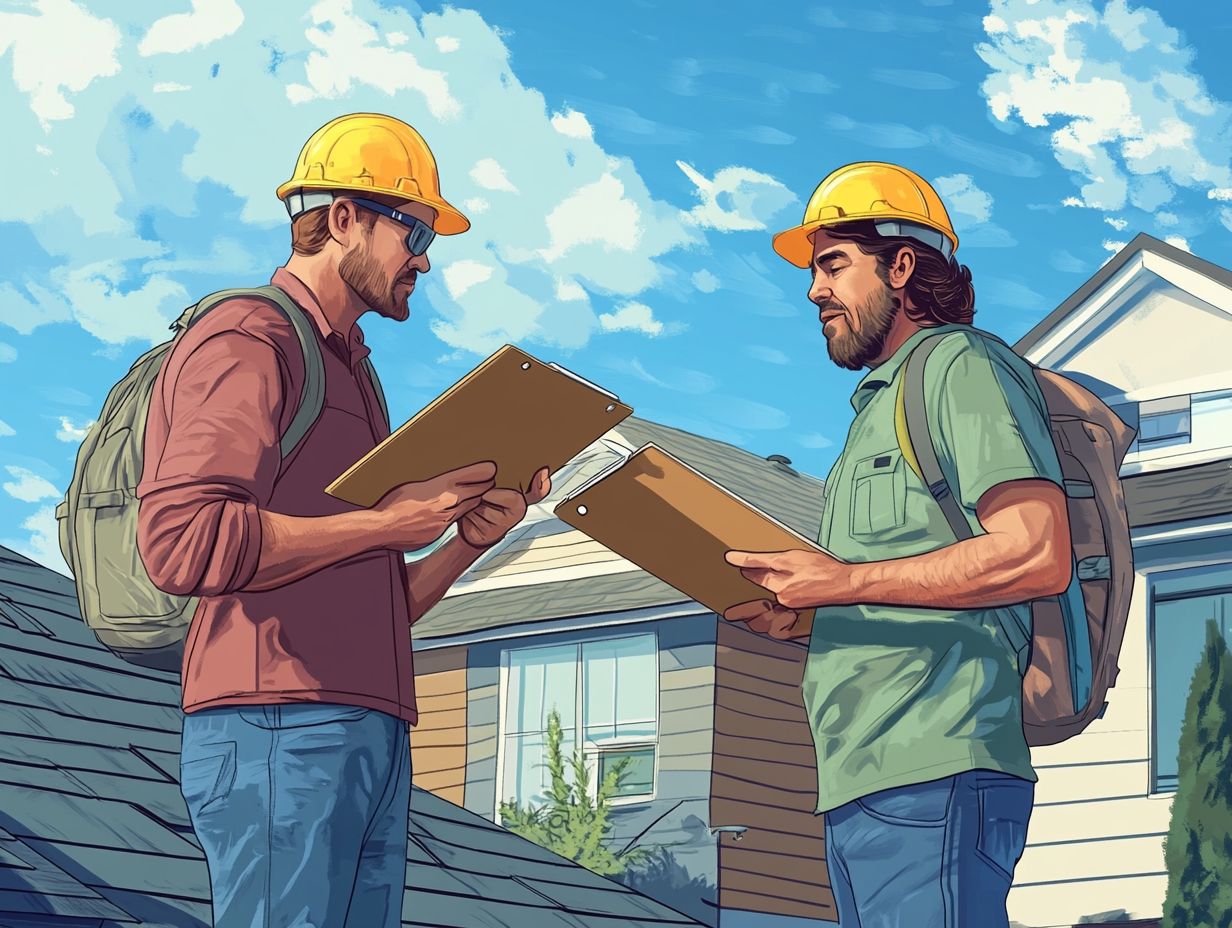
Failing to request a detailed report after a home inspection can create misunderstandings about the property’s condition, leaving you unaware of necessary repairs, maintenance issues, and potential costs. To avoid this, it’s crucial to understand the 5 key components of effective home inspections.
Without a detailed report from the home inspector, critical details about pipes and wiring might slip through the cracks, leading to expensive surprises later on. To avoid such pitfalls, be aware of the 5 common mistakes in real estate negotiations.
A well-documented inspection report becomes your essential reference for future home maintenance and decision-making. It clearly outlines areas of concern such as safety hazards and the strength of the building.
It should feature thorough evaluations, detailed photographs, descriptions of each system, and recommendations for repairs or upgrades. This report helps you negotiate the home’s price and make informed investment decisions.
5. Not Following Up on Repairs or Issues
If you ignore repairs from your home inspection, you risk facing bigger and costlier problems down the road! Neglecting to follow up on repairs or issues highlighted during the home inspection can set you on a path toward escalating problems, including serious structural issues and soaring repair costs that could have been easily managed with timely action.
As a homeowner, you may find yourself grappling with increasingly extensive damage over time, which not only undermines the integrity of your home but also its resale value.
To sidestep this predicament, it s vital to establish a maintenance schedule that outlines necessary tasks, whether they involve minor repairs or significant renovations. Bringing in licensed professionals for specific concerns ensures that repairs are executed correctly and in accordance with local codes.
Maintaining open lines of communication with any contractors involved allows you to prioritize essential repairs, helping to create a safe and comfortable living environment while potentially saving you money in the long run.
What Is a Home Inspection and Why Is It Important?
A home inspection is an essential process conducted by certified inspectors to thoroughly evaluate the condition of a property. They identify common issues, such as roofing problems, electrical system failures, and plumbing concerns, ultimately providing you with a comprehensive assessment that informs both buyers and sellers about the property’s current state and energy efficiency.
During the inspection, these professionals will assess structural integrity, check for pest infestations, evaluate HVAC systems, and examine insulation and ventilation.
The role of home inspectors goes beyond merely pinpointing flaws; they also offer valuable insights into necessary repairs and maintenance trends, which can significantly influence the transaction process. This information is crucial for you, as it not only highlights potential negotiation points but also helps set realistic expectations.
By understanding the property’s strengths and weaknesses, you and all other stakeholders can make informed decisions, fostering transparency and ultimately ensuring a smoother transaction.
What Are the Key Areas Inspected in a Home?
During a home inspection, you’ll want to pay close attention to key areas such as roofing, plumbing, electrical systems, and foundational integrity all vital for ensuring your property’s safety and longevity.
These elements are the backbone of your home’s infrastructure and significantly affect its overall functionality. Inspectors will assess the roofing for any signs of wear or damage, like missing shingles or leaks, which could lead to water intrusion and extensive interior damage over time.
In plumbing, they ll examine for leaks, the condition of pipes, and water pressure issues that could result in costly repairs or even water damage. The electrical systems undergo scrutiny for outdated wiring or insufficient capacity, both of which are common fire hazards.
They’ll also evaluate the foundation for cracks or settling, as these issues can jeopardize the structural integrity of your entire home. Identify these concerns early to protect your investment and avoid costly repairs later!
How Can a Home Inspection Help with Negotiations?
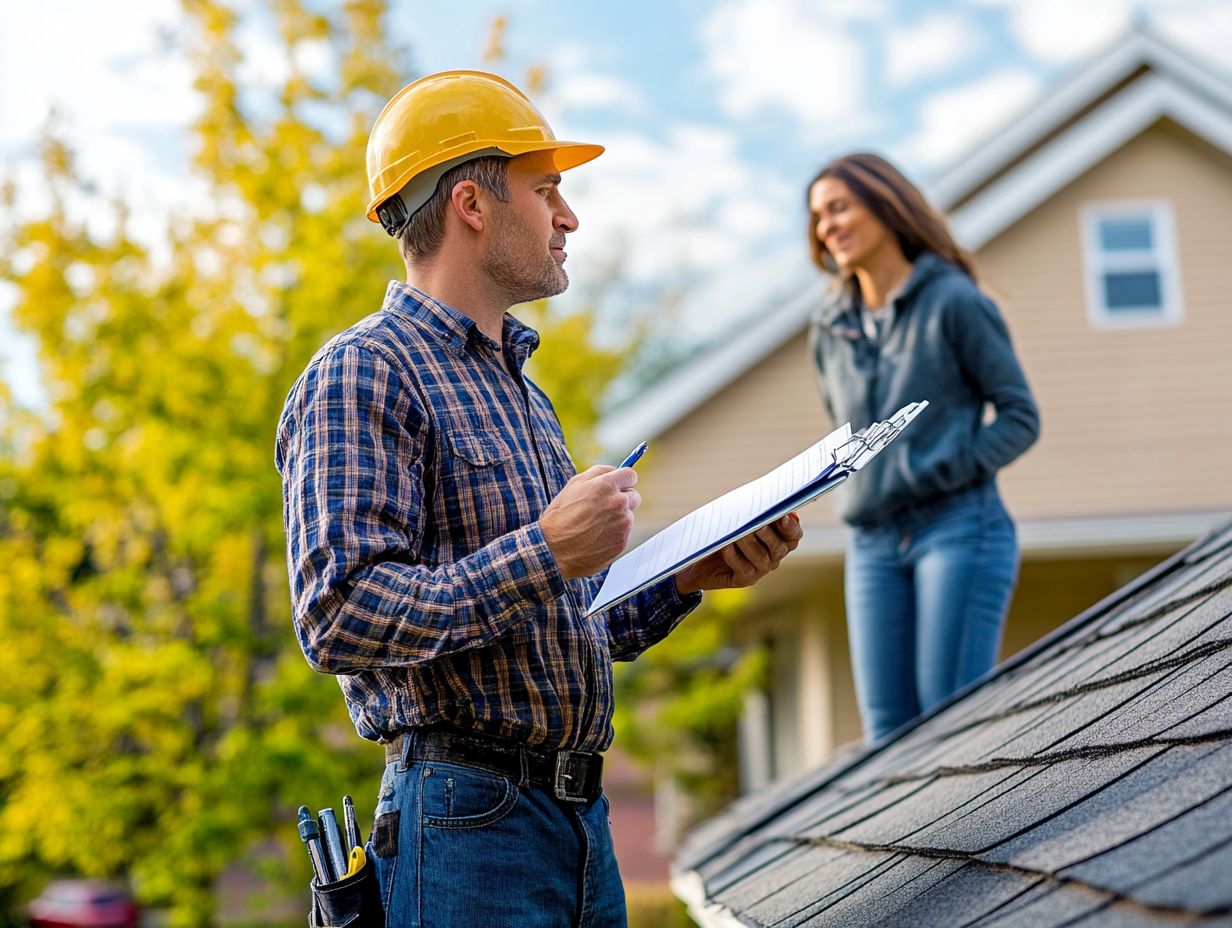
A home inspection can significantly enhance your negotiating position. It gives you leverage based on the findings, allowing you to discuss repair costs or request necessary fixes before sealing the deal.
Specific issues, like a leaky roof or outdated plumbing, can be very important in negotiations. You might insist that the seller address these concerns upfront or consider a reduction in the sale price to account for anticipated repair costs.
For example, presenting the estimated costs to replace the roof uncovered during the inspection allows you to advocate for more favorable terms. Open and transparent communication is essential; when sellers understand your concerns, they are more likely to seek common ground, leading to resolutions that satisfy everyone involved.
What Are the Potential Consequences of Skipping a Home Inspection?
Skipping a home inspection may seem like a tempting shortcut, but it can lead to serious problems. To avoid pitfalls, be aware of the mistakes to avoid when viewing homes. You could face unexpected safety hazards, costly repairs, and shocking discoveries like mold, inadequate insulation, or weak foundations after you’ve signed the papers.
Homeowners who overlook this vital step often wrestle with significant issues, causing financial strain and emotional turmoil. For instance, a family in Texas moved into their dream home, only to uncover black mold lurking behind the walls. This ended up costing them over $30,000 to fix.
Reports indicate that about 30% of homebuyers who skip inspections face repair bills exceeding $15,000 within their first year of ownership.
The emotional burden can be heavy; many experience regret and anxiety as they tackle these unexpected challenges. That’s why a comprehensive inspection saves you money and stress!
How Can a Homeowner Prepare for a Home Inspection?
You can elevate your home inspection experience by ensuring that every area of your property is easily accessible. Additionally, addressing minor maintenance issues beforehand paves the way for a smoother inspection process.
It’s also crucial to confirm that all utilities water, electricity, and gas are fully operational. This helps avoid unpleasant surprises during the inspection and shows that you maintain your property well.
Being present to address any questions the inspector may have promotes a thorough evaluation. By proactively resolving obvious issues and engaging during the inspection, you can increase your chances of achieving a favorable outcome.
What Are the Benefits of Regular Home Inspections?
Regular home inspections offer a wealth of advantages. They help catch potential problems early, boost energy efficiency, and enhance safety for everyone in the residence. Ultimately, these inspections play a crucial role in preserving your property’s value.
Regular inspections help you spot problems early. They save you significant amounts of money in the long run by preventing small issues from turning into costly repairs. These evaluations often uncover opportunities for energy efficiency upgrades, lowering your utility bills while positively impacting the environment.
Safety is a top priority; inspections can reveal hazards like faulty wiring or plumbing issues, ensuring the well-being of everyone in your home.
Ultimately, knowing your property is in excellent condition allows you to focus on enjoying your living spaces, free from the stress of unexpected repairs.
Frequently Asked Questions
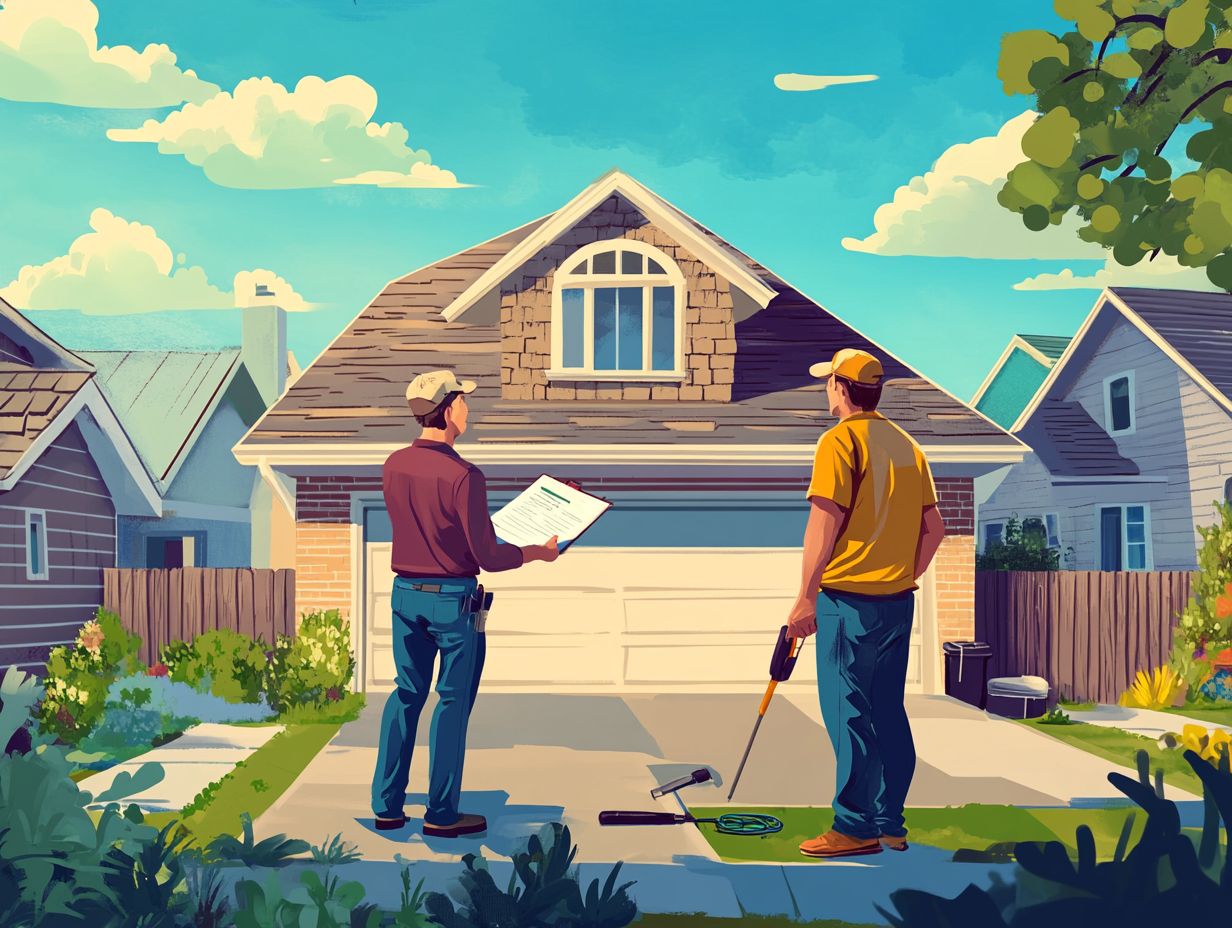
What are the 5 common home inspection mistakes?
Have you thought about the common pitfalls when it comes to home inspections? Understanding the 5 common misunderstandings about home inspections can help you avoid mistakes such as not hiring a qualified inspector, not attending the inspection, not reading the full report, not considering potential future problems, and not budgeting for repairs.
Why is it important to hire a qualified home inspector?
Hiring a qualified home inspector is essential. They have the training and experience to spot issues that could affect your home’s safety and value.
What should I do during a home inspection?
Be present during the inspection and ask questions. This helps you understand the property’s condition and any possible problems.
Why should I read the full inspection report?
Reading the complete inspection report is vital. It details the inspector’s findings, including any issues and repair recommendations.
Should I consider potential future problems during a home inspection?
Absolutely! Thinking about possible future repairs or maintenance is crucial. It impacts your budget and your decision to buy the property.
Why is it important to budget for repairs after a home inspection?
Budgeting for repairs is important after an inspection. The inspector may find issues that need addressing, so having funds set aside is essential for your home’s safety and value.

